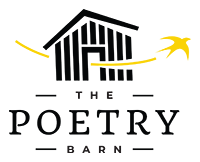Sneak Peek: “I’m with the Banned”
Kim Noriega, Director of the San Diego Family LIteracy Program
Poetry Barn’s director Lissa Kiernan caught up with Kim Noriega to chat a bit about her upcoming poetry workshop, “I’m with the Banned—Celebrating and Exercising Our Freedom to Read and Write.”
LK: Welcome to the Poetry Barn spotlight, Kim. Thanks for agreeing to give our members a little “sneak peek” of your workshop. What inspired you to base a workshop on Banned Books Week?
KN: Thank you, Lissa. I’m excited to be here and I’m excited about my workshop next month. As for inspiration, I’ve worked for the public library in San Diego for the past 28 years and have been on the Intellectual Freedom and Banned Books Committees for many of them. Every year library staff members give readings of banned and challenged books. I usually read a few poems that falls in that category. There are so many great poems and poets subjected to censorship!
LK: Is there one that especially comes to mind? Maybe a lesser known poet?
KN: Oh, absolutely! Here’s one of my favorites. A fifteen-year-old girl wrote a poem in the 70s about her experience of being the subject of lewd remarks by men when she walked to school. It was published in an anthology. It was challenged to be removed from a school library in Chelsea, Massachusetts. The school librarian and others in support of the right to read fought back in court, and won! Here’s the poem:
The City to a Young Girl
by Jody Caravaglia
The city is
One million horny lip-smacking men
Screaming for my body.
The streets are long conveyor belts
Loaded with these suckling pigs.
All begging for
a lay
a little pussy
a bit of tit
a leg to rub against
a handful of ass
the connoisseurs of cunt
Every day, every night
Pressing in on me closer and closer.
I swat them off like flies
but they keep coming back.
I’m a good piece of meat.
From Male & Female Under 18: Frank Comments from Young People About Their Sex Roles Today, editors Nancy Larrick and Eve Merriman, Avon Books, 1973
LK: What’s the focus of the workshop?
KN: Overall, the workshop is generative, but I always include a revision prompt for people who have work they want to bring to the next level. The heart of the workshop is freedom of expression. We’ll read poets whose work has been challenged or censored to kindle the spark to write in that white-heat-keep-the-hand-moving way that can shake things up in a poet’s writing, in a good way. I really wanted to create a workshop where people can cut loose a little and try new things, experiment. And I have.
LK: What aspects of craft will you work with during the workshop?
KN: Again, we’ll be focusing on craft techniques that foster expression—the long line, repetition, vivid imagery, and the power of reading aloud. Not that we won’t revise or critique work, we will, but first I want to focus on getting the words on the page, without the critic weighing in. And when it comes to revision, we’ll consider the perils of over-revising, which is a valid concern.
LK: That sounds great! Is there anything else you’d like people to know about the workshop?
KN: Oh, yes. I didn’t mention that we’ll play around a little bit with a powerful writing tool I’ve been working on with my dear friend and amazing vocal artist/coach Danielle LoPresti—memorizing at least one of our poems. It’s very Fahrenheit 451, but also a terrific tool to refine poems at a whole new level. Also, it’s the way Anna Akhmatova was able to keep her poems safe from Stalin.There are some amazing poems and poets in this category, well-known and less well-known.
LK: Great, Kim. Thanks for stopping by The Poetry Barn.
KN: My pleasure, Lissa. Thanks for having me.

